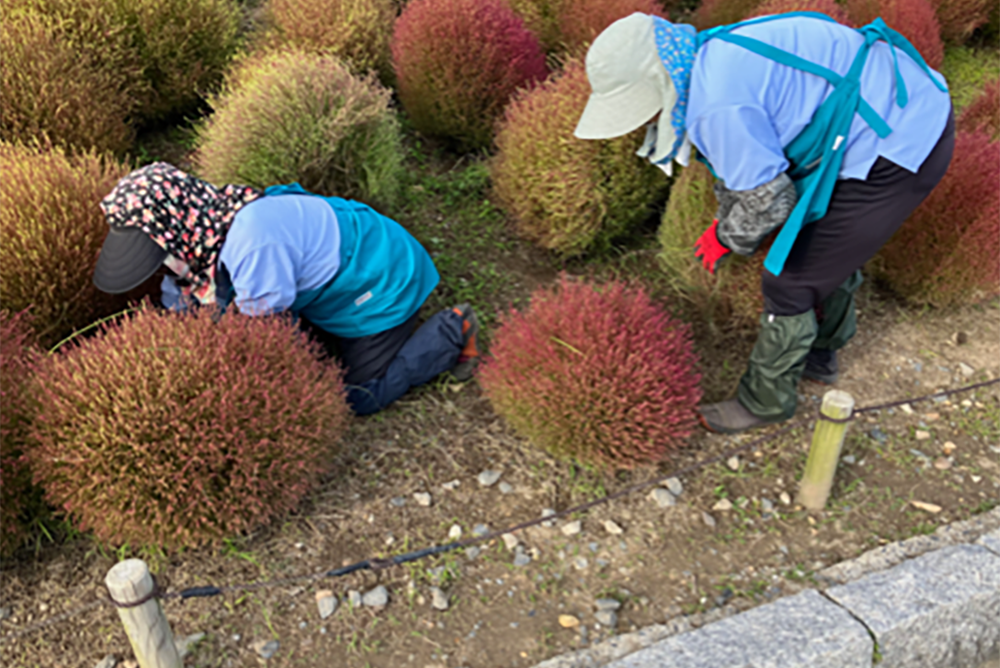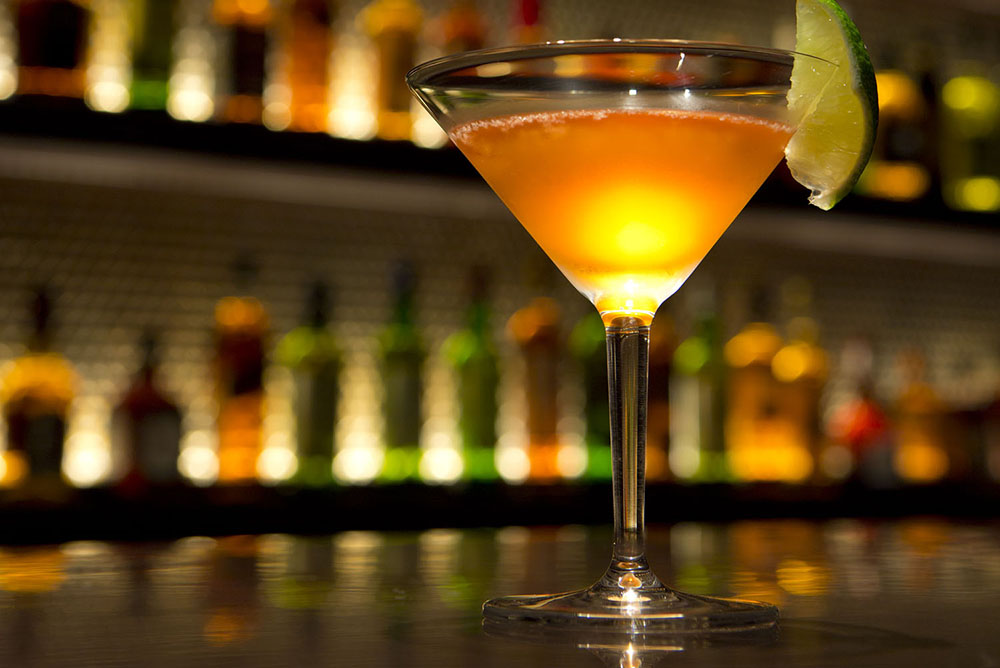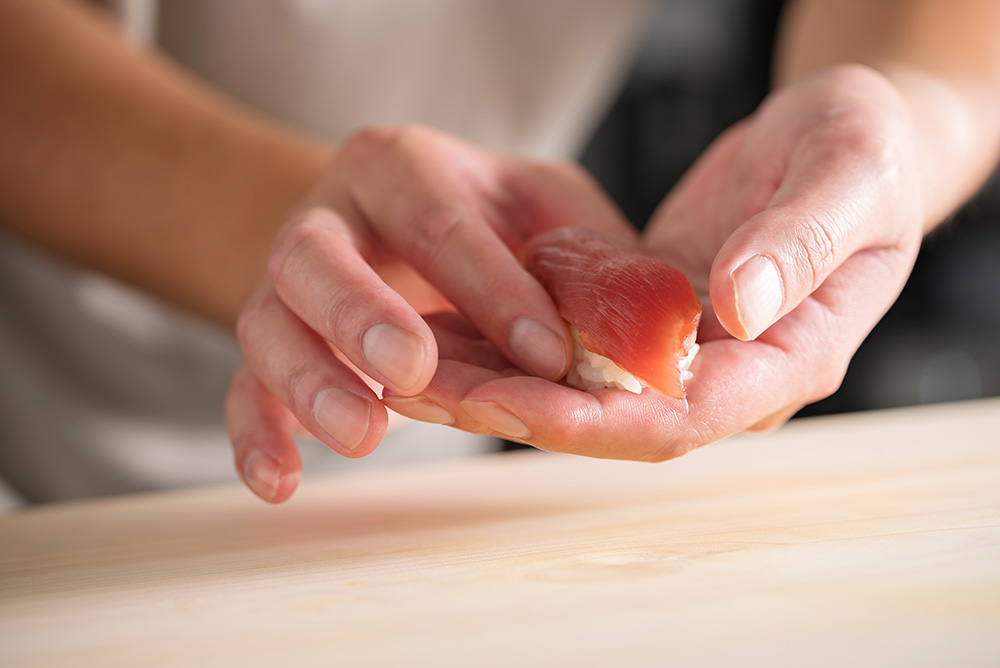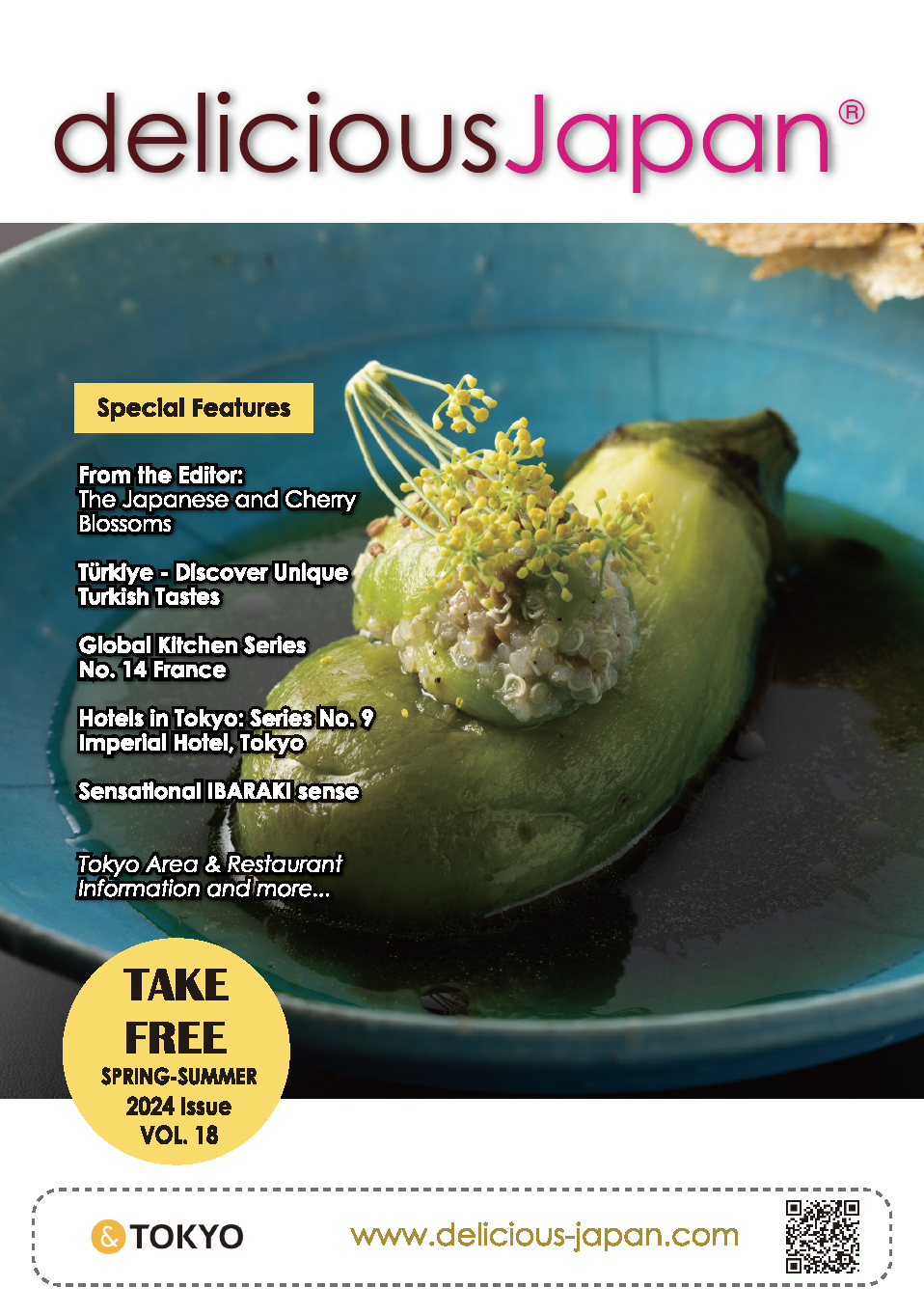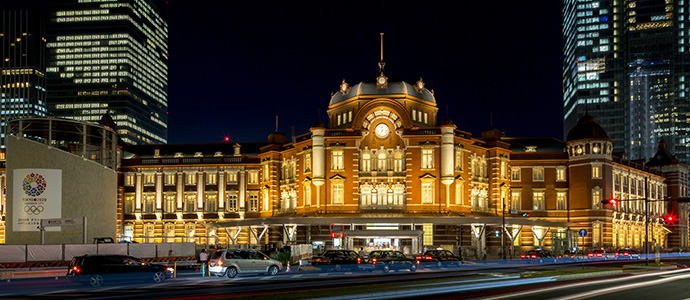
The Tokyo Station Hotel
The Most Important Thing is to Delight our Guests
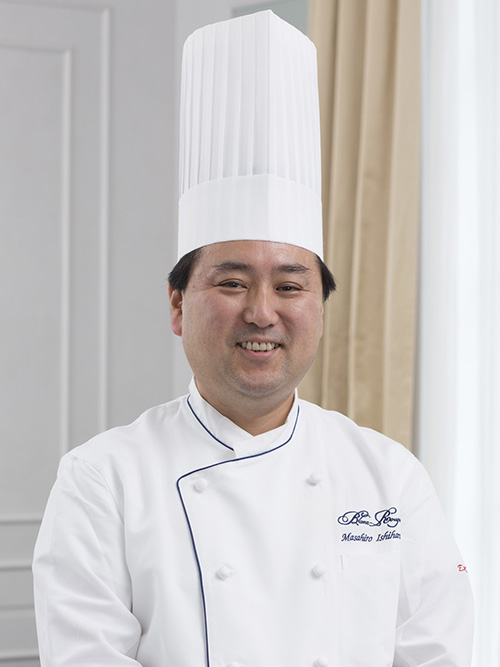
Masahiro Ishihara
Executive Chef
The Tokyo Station Hotel
My father was a professional cycle racing rider. When he brought his prize money for race wins home in cash, we often went to eat out. He took us to eat sushi, tempura, and all kinds of other things. Watching sushi chefs squeezing sushi, or cooks frying tempura right in front of me, I got interested in the look of cooks, rather than cycle racers, and I wanted to become a chef.
What are the most important things for you as an executive chef?I became a cook when I was around 20 years old. Every time I see a family enjoying a meal together in the restaurant, I think again that making guests happy is the starting point for a chef. Restaurant Blanc Rouge which you lead was chosen for "La Liste 2018", which has been called "the Oscars of the Culinary World".
What are your restaurant's characteristics?As I was trained by Katsuhiro Nakamura, the first Japanese master chef to gain a Michelin star, the cuisine is French, but it incorporates an awareness of the scents and land of Japan. We use the ingredients of Japan and France together to prepare dishes that can only be tasted here. We make dishes that give the feeling of Japanese cuisine.
What are the conditions and elements needed for making delicious food?The work that precedes the food preparation is important. You need to carefully select good ingredients. To that end, I go all over Japan and also visit trade shows in search of good ingredients.
What kinds of food experiences do you want overseas customers to have at The Tokyo Station Hotel?Judging from customer comments about breakfast, people who eat here can experience many Japanese washoku breakfasts. Tokyo was Edo long ago, I'd like diners to try old-fashioned dishes like yukigemeshi (tofu, broth, and cooked rice poured into the dish together), Ryogoku's poultry hotpot and Fukagawameshi (rice cooked with clams), and Tsukugen Tanakaya's tsukudani (preserved ingredients boiled in soy sauce). I hope people try our delicious soybean dishes as well.
How do you go about sourcing ingredients and developing menus?I go out and look around for ingredients I think are good. For example, I use wagyu beef from Kochi for hamburgers. Its red meat and flavor are good. There are good things hidden away all over the country, so I find those and then develop menu items that bring them together. We prepare new menus nine times a year, at intervals of a month and a half. I want to create things that mix East with West, and Japanese with foreign.

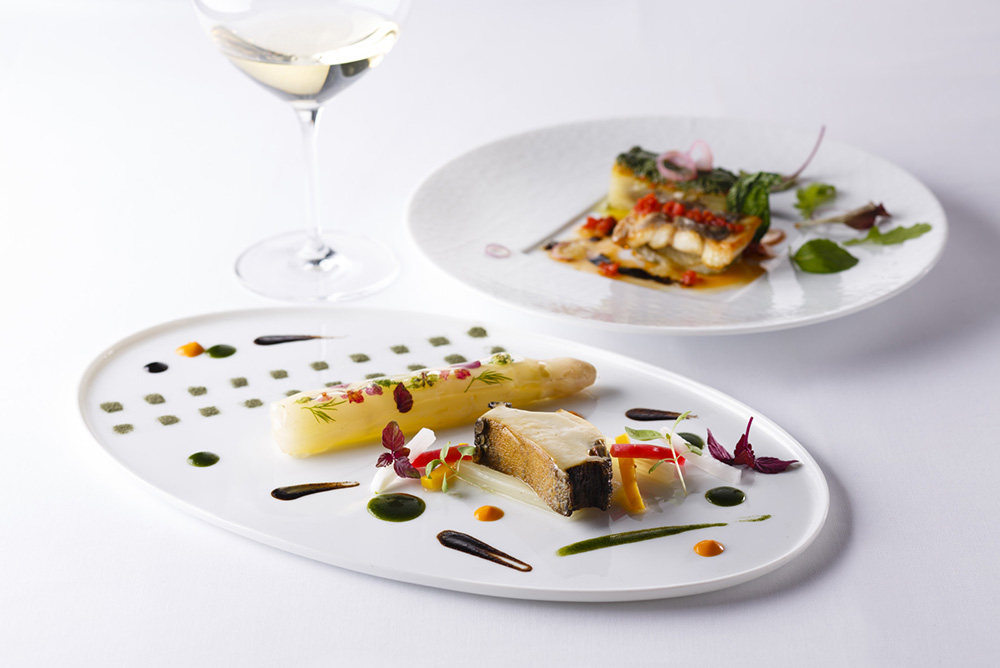
This hotel is 335m long, so the interior of the building is decorated with pictures and photos, so the guests don't get bored while moving around the place. There are even hour-long tours within the building. That 335m length is a challenge for the hotel, but it's also a selling point. There are people who still don't even know there's a hotel here, so my ambition is to do what little I can in the culinary department until everyone knows. I'll do my best until everyone knows the Restaurant Blanc Rouge tastes extraordinarily good, and people associate us with the image of "French cuisine in Japan".
From the perspective of food diversity, what can you offer for those with vegetarian, vegan, halal, and other needs?We cover all needs whenever possible. For halal, we are Muslim-friendly. Using restaurants isn't just for able-bodied people. We prepare baby food for little kids at wedding receptions, and soft, easy-eating menu items for older diners with poor teeth. We'll do everything we can! We see it as vitally important to have an awareness of respecting guests of all kinds.
What aspect of food hospitality do you strive for every day?We work together with the service department to keep lists of what kinds of guests visit us, and how many times, and what they like. People are better satisfied by eating the things they like. With detailed attention to devising our menus, we carefully create each item that exists nowhere else. It means getting to know our guests. I think being a restaurant means preparing a table where all members of a family, friends, can dine together and eat things they like.
What does “true omotenashi” mean to you?The most important thing is to delight our guests. I think it would be boring for repeater customers to eat from the same menu every time. Of course, we want guests to have the things they like the best, and also to get to like dishes, so we devise and serve things that guests will get to like. The wines we recommend are picked by the sommelier to complement the meal rather than clashing with it. It's fundamental that the food is the first important thing, but I think true omotenashi happens when everyone, not just the chef but also the sommelier and the waiters, comes together as a team to serve food that will delight the diners.
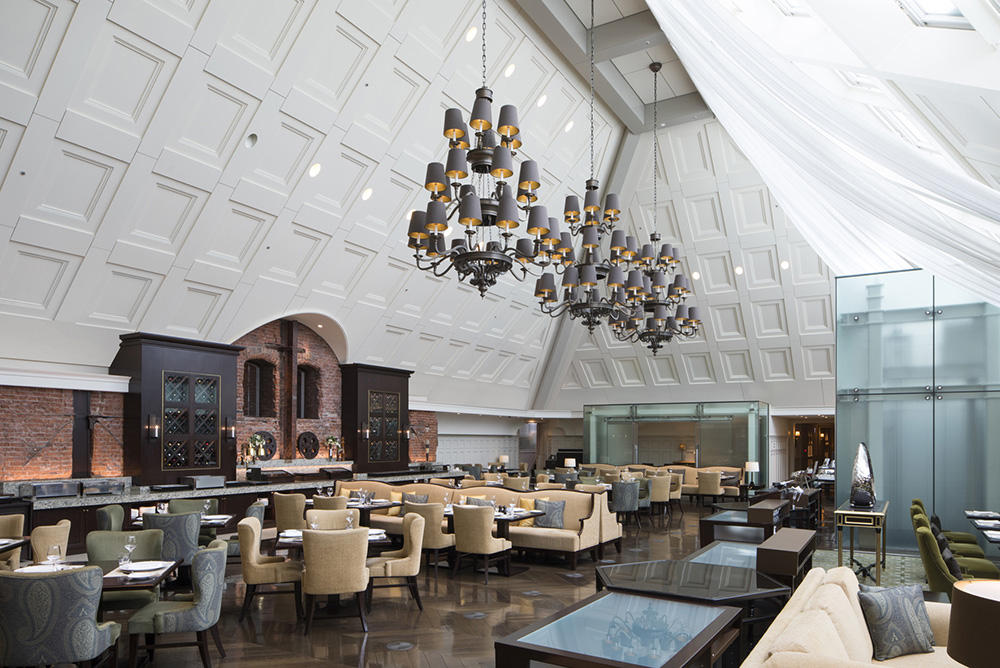
Proud of Over 100 Years of Classic Luxury
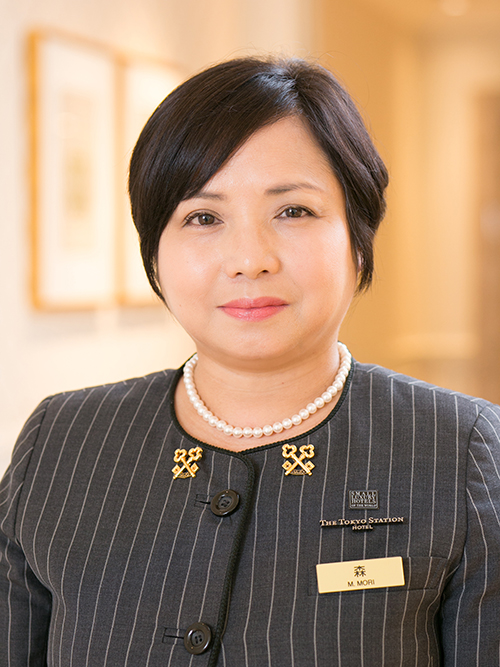
Marie Antoinette Mori
Chief Concierge
Member of Les Clefs d’Or
The Tokyo Station Hotel
I was born in Manila, The Philippines. As a university student, I got interested in Japanese culture and came to Japan to study International Tourism, then gained experience as a hotelier at global chain hotels in Japan and overseas. In 2012, I joined the team preparing to reopen The Tokyo Station Hotel, a Nippon Hotel Group. Nippon Hotel’s first Concierge section was launched the next year in 2013 and I became a member of Les Clefs d’Or, the international network of hotel concierges, in 2018.
The Tokyo Station Hotel boasts its "Classic Luxury", but what's the key point of that?We aspire to become a hotel that people will love through the ages. We give our best efforts every day to create a comfortable, pleasing space that lives up to the dignity and story of the Tokyo Station and The Tokyo Station Hotel. Designated as an Important Cultural Property of Japan, we aim to combine its rich history with a character of a friendly hotel where guests can feel at home.
I gather you've entered a partnership with one of the world's leading companies in hygiene management. What Covid-19 countermeasures do you use?Following the strict hygiene protocols of Ecolab, we acquired Sharecare Health Security VERIFIED (Forbes Travel Guide) and GBAC Star Facility Accreditation, proving that we are a facility that satisfies international hygiene standards committed to safeguard the health and safety of our guests and employees.
What are a few fun ways to spend time at The Tokyo Station Hotel?I have to say that there is no “one size fits all” answer to this. We like to get to know our guests, gather information through conversation and offer them customized services. Our guests will definitely enjoy our 10 restaurants & bars, the spa, and huge spread of breakfast at The Atrium. We also encourage guests to have a closer look at the reliefs at the cupola domes’ Archive and the historic photos at the hallways.
What are the most important things for you as a concierge?To always provide guests with that extra care to make their experience better than they have imagined. To anticipate guests’ needs before they even have to ask. To keep researching and expand network of partners. To protect the hotel’s reputation with trust and integrity. Be knowledgeable and sensitive to trends and deliver innovative services which suit the times.
What differences are there in the ways you interact with Japanese and foreign guests?As we are all travelers, it is important to ensure service with equality wherein all guests get the same attention and service they deserve. That also requires an understanding of protocols. Our mission is to provide our guests with a most pleasant stay worth cherishing for a lifetime.
What kinds of questions, requests, and consultations do you often get from guests?We are often asked about gourmet suggestions, art and cultural experiences, train travel recommendations, particularly because we are inside Tokyo Station. We also offer Meet & Greet Service to and from Tokyo Station. Travel suggestions are made with the concept of “travel in style, the Japanese omotenashi way” in mind.
What has moved you most in your work as a concierge?The thing that moved me the most and which I am most grateful for is that Nippon Hotel Group established its first concierge section and assigned me to be the Chief Concierge of The Tokyo Station Hotel.
What does “concierge” mean to you?A concierge should have a balanced combination of technical skills, communication skills and emotional intelligence. As a member of Les Clefs d’Or, we strive to showcase Japan’s tradition, culture and beauty, and contribute even small steps to the tourism industry. I wish to inspire younger hoteliers though accumulation of efforts and eventually pass the baton to the next generation.
And what is true hospitality?I am still searching for the true meaning of hospitality and truly believe that it should always come from the heart with sincerity and empathy. When I feel somewhat lost, I go back to the spirit I began with and reread “Our Promise”, the credo of The Tokyo Station Hotel and it gets me back to the right track. We aim to begin our omotenashi service from a point of empathy that we share with our guests.

